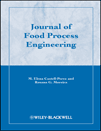
JOURNAL OF FOOD PROCESS ENGINEERING
Scope & Guideline
Driving innovation in food processing through academic excellence.
Introduction
Aims and Scopes
- Food Processing Technologies:
The journal covers advanced food processing techniques such as microwave drying, pulsed electric fields, and ultrasound-assisted extraction, aiming to improve efficiency and product quality. - Food Quality and Safety:
Research on methods to enhance the safety and quality of food products, including microbial inactivation, shelf-life extension, and preservation techniques. - Bioprocessing and Biotechnology:
Exploration of biotechnological applications in food processing, including enzyme technology, fermentation processes, and the extraction of bioactive compounds. - Modeling and Simulation:
The journal emphasizes mathematical modeling and simulation techniques to predict and optimize food processing parameters, energy consumption, and product characteristics. - Sustainable Practices:
Focus on sustainable food processing practices, including waste valorization, energy-efficient technologies, and the development of biodegradable packaging materials.
Trending and Emerging
- Smart and Automated Systems:
There is a growing trend towards the integration of IoT and AI in food processing systems, allowing for real-time monitoring and control to enhance efficiency and product quality. - Sustainable Food Processing:
Research on sustainable practices is gaining momentum, focusing on waste reduction, energy efficiency, and the development of eco-friendly packaging solutions. - Advanced Extraction Techniques:
Emerging interest in advanced extraction methods, such as supercritical fluid extraction and ultrasonic-assisted extraction, aimed at maximizing bioactive compound yields. - Machine Learning and Data Analytics:
The application of machine learning techniques for predictive modeling and optimization in food processing is becoming increasingly prevalent. - Food Safety Innovations:
Heightened focus on innovative methods for ensuring food safety, including novel sterilization techniques and intelligent packaging solutions that indicate freshness.
Declining or Waning
- Traditional Preservation Methods:
There is a noticeable decrease in publications focused on traditional methods of food preservation, such as canning and pickling, as newer, more efficient technologies gain traction. - Conventional Drying Techniques:
Research on conventional drying methods, such as sun drying and hot air drying, is less frequent, with a shift towards advanced techniques like microwave and infrared drying. - Basic Food Processing Equipment Design:
While equipment design remains important, there is a waning interest in basic designs, with more emphasis on automation and IoT-integrated systems.
Similar Journals
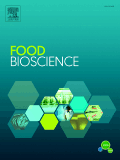
Food Bioscience
Cultivating a Deeper Understanding of Food BioscienceFood Bioscience is a leading peer-reviewed journal published by Elsevier, dedicated to advancing the understanding of the complex interplay between food science and biosciences. With an impressive Impact Factor that places it in the Q1 and Q2 quartiles for Food Science and Biochemistry respectively, the journal consistently ranks among the top publications in its field, reflected in its Scopus rankings (Rank #83/389 in Food Science and Rank #175/438 in Biochemistry). Since its inception in 2013, Food Bioscience has fostered a multidisciplinary approach, bridging gaps between research in agricultural, biological, and food sciences, thus encouraging innovative solutions to the pressing challenges facing the global food supply chain. Although it currently operates under a subscription model, the journal is committed to disseminating high-quality research, making significant contributions to both academic scholarship and industry practices. Researchers, professionals, and students alike are invited to explore the wealth of knowledge contained within its pages as it plays a pivotal role in shaping the future of food bioscience.
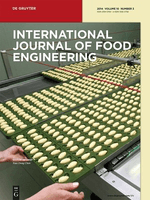
International Journal of Food Engineering
Elevating Food Systems with Cutting-Edge ResearchThe International Journal of Food Engineering, published by WALTER DE GRUYTER GMBH, serves as a pivotal platform for cutting-edge research in the field of food engineering. With an ISSN of 2194-5764 and an E-ISSN of 1556-3758, this journal focuses on innovative technologies, production processes, and quality control within food systems. Located in Germany, the journal has gained notable recognition, as reflected in its Scopus rankings, which place it within the 61st percentile in miscellaneous engineering and the 50th percentile in food science. Although it operates under a traditional access model, the journal's striking category quartiles signify its importance: achieving Q2 in Engineering and Q3 in both Biotechnology and Food Science in 2023. By fostering interdisciplinary research, the International Journal of Food Engineering aims to connect scientists, engineers, and industry professionals, ultimately contributing to advancements in food safety, sustainability, and nutrition. Join a vibrant community of experts driving innovation and addressing global food challenges through your contributions to this esteemed journal.
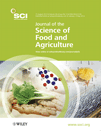
JOURNAL OF THE SCIENCE OF FOOD AND AGRICULTURE
Elevating the science of food and agriculture.Welcome to the Journal of the Science of Food and Agriculture, a leading academic publication in the realms of Agronomy, Food Science, Biotechnology, and Nutrition. Founded in 1950 and published by Wiley, this journal has established itself as a vital resource for researchers and professionals committed to advancing knowledge and innovation in food and agricultural sciences. With a remarkable impact factor reflective of its esteemed status—ranking Q1 in Agronomy and Food Science and Q2 in Biotechnology and Nutrition, this journal stands at the forefront of critical research, featuring rigorous peer-reviewed articles that span a wide array of topics. Access options are available through institutional subscriptions, ensuring that indispensable research reaches both scholars and practitioners alike. As it converges into 2024, the journal continues to address key challenges and opportunities within the field, making it essential reading for anyone interested in sustainable agricultural practices and food security. Engage with cutting-edge research that shapes our understanding of food systems and agricultural advancements.
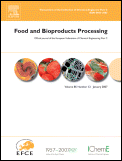
FOOD AND BIOPRODUCTS PROCESSING
Transforming raw materials into culinary excellence.FOOD AND BIOPRODUCTS PROCESSING, published by Elsevier, is a leading journal dedicated to advancing the fields of biochemistry, biotechnology, chemical engineering, and food science. With a strong impact factor and robust rankings—Q2 in Biochemistry and Biotechnology, and Q1 in Food Science—it serves as an essential resource for researchers, industry professionals, and students alike. The journal focuses on innovative research and practical applications in the processing of food and bioproducts, spanning from raw material transformation to product development. By fostering the exchange of knowledge and ideas, FOOD AND BIOPRODUCTS PROCESSING aims to enhance food quality and sustainability while addressing global challenges in food security and environmental impact. With an accessible format and a diverse pool of contributors, this publication stands as a vital platform for groundbreaking studies, making significant contributions to the advancement of technology and practices in food processing and production.
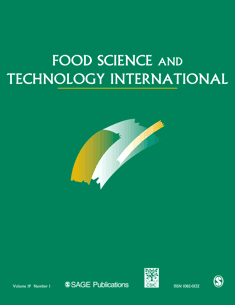
FOOD SCIENCE AND TECHNOLOGY INTERNATIONAL
Exploring the future of food systems and safety.FOOD SCIENCE AND TECHNOLOGY INTERNATIONAL, published by SAGE Publications Ltd, is a premier journal in the fields of food science and technology, serving as a crucial platform for the dissemination of innovative research and practical applications from 1995 through to 2024. With an impact factor reflecting its significant standing—ranking in the Q2 quartile for Chemical Engineering, Food Science, and Industrial and Manufacturing Engineering—this journal plays an instrumental role in advancing the interdisciplinary study of food systems. Researchers, professionals, and students can access high-quality contributions that address the latest developments and trends in food technology, safety, and processing. Located in the United States, FOOD SCIENCE AND TECHNOLOGY INTERNATIONAL also boasts commendable Scopus rankings, ensuring its articles are both relevant and widely cited within the academic community. As a vital resource for anyone engaged in food science research, этот журнал fosters knowledge sharing and innovation in the ever-evolving landscape of food technology.

Acta Scientiarum Polonorum-Technologia Alimentaria
Exploring the Future of Food TechnologyActa Scientiarum Polonorum-Technologia Alimentaria, published by Poznan University of Life Sciences, is a revered journal in the field of food science, showcasing cutting-edge research and innovations in food technology. Established as a leading platform within its domain, this journal is indexed under Scopus and ranks in the 2023 Q3 quartile for Food Science, demonstrating its commitment to high-quality scholarship. With an ISSN of 1644-0730 and E-ISSN 1898-9594, it serves as a critical resource for researchers, professionals, and students seeking to stay at the forefront of advancements in food safety, quality control, and sustainable practices. The journal has also been recognized for its contributions to the agricultural and biological sciences, positioning itself at rank #205 out of 389 in this competitive field. While currently not offering open access, the journal's valuable insights and findings, especially as it publishes through 2024, play a crucial role in advancing knowledge and fostering collaboration among experts in the food science sector.

Journal of Food Measurement and Characterization
Transforming Food Science Through Rigorous MeasurementJournal of Food Measurement and Characterization, published by SPRINGER, is a pivotal resource for researchers and professionals in the fields of Chemical Engineering, Food Science, and Industrial and Manufacturing Engineering. With an ISSN of 2193-4126 and an E-ISSN of 2193-4134, this esteemed journal has carved its niche since its inception in 2012, continuing to contribute valuable insights until 2024. Ranking in the Q2 category across multiple disciplines, including Safety, Risk, Reliability, and Quality, it reflects a strong commitment to advancing knowledge and innovation within these critical areas. Although it operates under a subscription model, the journal provides an array of access options for institutions and researchers keen to explore novel methodologies and analyses in food measurement and characterization. The journal’s rigorous peer-review process ensures the dissemination of high-quality research, making it an essential platform for advancing the science of food and related industries.

Food Engineering Reviews
Driving Efficiency and Sustainability in Food Engineering Practices.Food Engineering Reviews is a prestigious journal published by SPRINGER, dedicated to advancing the field of food engineering through comprehensive review articles that synthesize current research and innovative practices. With an ISSN of 1866-7910 and an E-ISSN of 1866-7929, this journal serves as a vital resource for researchers, professionals, and students interested in the intricacies of food processing, preservation, and engineering techniques. Notably, the journal holds an impressive Q1 ranking in the category of Industrial and Manufacturing Engineering as of 2023, and it is positioned in the 94th percentile within its field according to Scopus rankings, highlighting its significance within the academic community. Although it does not offer open access, the rigorous content published in the journal from its inception in 2009 through to 2024 plays a crucial role in shaping practices that promote efficiency and sustainability in food engineering. The journal aims to foster knowledge exchange among scholars and industry experts, ensuring that emerging trends and foundational research are accessible to those striving towards excellence in food technology.

Food and Bioprocess Technology
Innovating Sustainable Solutions for Food SafetyFood and Bioprocess Technology, an esteemed journal published by Springer, serves as a premier platform for disseminating cutting-edge research in the realms of food science, industrial manufacturing engineering, and process chemistry and technology. Established in 2008, the journal has quickly ascended to the prestigious Q1 quartile in multiple categories, highlighting its impact and relevance within the scientific community. With an impressive Scopus ranking that places it in the top tiers of its fields—such as rank #17 in Safety, Risk, Reliability, and Quality, and rank #38 in Food Science—this journal is pivotal for researchers and professionals aiming to publish innovative findings that advance food processing and bioprocess technology. Beyond its rigorous peer-review process, the journal facilitates access to high-quality, impactful research, reinforcing its significant role in shaping the future of biotechnological applications in food systems. Aimed at both scholars and practitioners, Food and Bioprocess Technology is an essential resource for those engaged in exploring sustainable practices and enhancing food quality and safety. Furthermore, by addressing essential topics in the field, it fosters collaboration and knowledge exchange among researchers dedicated to advancing the bioprocessing landscape.
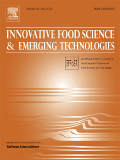
Innovative Food Science & Emerging Technologies
Advancing the Future of Food Science and TechnologyWelcome to Innovative Food Science & Emerging Technologies, a premier journal published by ELSEVIER SCI LTD that serves as a vital platform for researchers and professionals dedicated to the rapidly evolving field of food science. With an impressive Impact Factor and a position in the Q1 category across notable disciplines including Chemistry, Food Science, and Industrial and Manufacturing Engineering, this journal ranks among the top tier within its fields, evidenced by its Scopus ranking of 20th out of 389 in Food Science, placing it in the 94th percentile. Our readers can expect to encounter cutting-edge research and innovative applications from 2000 through 2024, exploring critical themes that contribute to advancements in food technology, manufacturing processes, and sustainability practices. Although currently not an Open Access publication, we maintain a commitment to disseminating high-quality scholarship that enhances knowledge and encourages collaboration among a diverse audience. Join us in driving forward the forefront of food science research in the Netherlands and beyond.